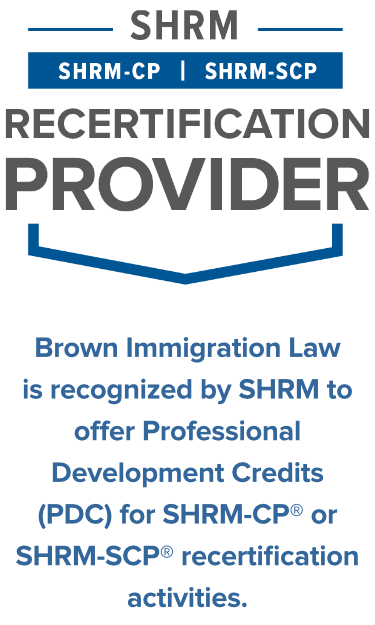The Booster Shot and Full Vaccination Requirement
Recently, the government has required proof of full vaccination for international travelers entering the United States (along with proof of a negative COVID test). As it currently stands, the CDC’s public facing guidance shows that the booster is not needed to show full vaccination, “everyone is still considered fully vaccinated two weeks after their second dose in a two-shot series, such as the Pfizer-BioNTech or Moderna vaccines, or two weeks after a single-dose vaccine, such as the J&J/Janssen vaccine.” Despite this, recent news sources report that a booster shot may become a requirement to be considered fully vaccinated and Dr. Fauci publicly along with the CDC are suggesting that fully vaccinated individuals may soon be those who have received a booster. We encourage everyone to stay safe and get vaccinated if you are able, including the booster shot, and those individuals who wish to travel internationally should continue to pay attention to CDC guidance as it will inform travel policy. We only mention this so clients can plan ahead to travel and return safely.
Build Back Better Act Still in the Hands of the Senate
As mentioned in our November newsletter, on November 18, 2021, the Build Back Better Act (“BBB”) passed the U.S. House of Representatives. This Act contains many provisions helpful to U.S. immigration, including work permit options for many undocumented persons, possible pathways to citizenship for Dreamers, and the following provisions:
- Authorize the use of unused green cards dating back to 1992.
- Prevent future loss of unused green cards.
- Allow immigrant workers to file green card applications early for a fee, even if a visa number were not immediately available, mitigating future backlogs.
- Allow workers waiting for more than two years after applying for a green card to expedite the process for a fee, exempting them from numerical limits, including per-country caps.
Notably, all of these provisions are at risk of being included in the final version of the bill. The bill has been sent to the Senate for debate and review by the Senate’s parliamentarian. The Senate’s parliamentarian must determine whether the inclusion of the immigration-related provisions comply with the chamber’s parliamentary rules. Recent reports confirm that a vote on the BBB won’t happen before Christmas. We continue to monitor this legislation as it moves through Congress.
Possible Expansion for Premium Processing
For many years, the possibility of the expansion of the premium processing service has been floated and in September 2020 Congress passed a bill that allowed USCIS to add premium processing to many existing services including I-140 Multinational Managers, EAD filings, dependent filings, etc. Recently it was announced that a regulation for its expansion is under federal review. The regulation would fill in the blanks on what categories are next for premium processing expansion, what the cost will be, and clarify processing times, as certain premium processing options could be set at 45 days rather than the customary two weeks. We will continue to monitor movement on this regulation and advise when these options come online.
Visa Bulletin
The visa bulletin for January 2022 has not yet been posted by the Department of State. For December, the visa bulletin shows that EB-1 Worldwide remains current, as well as EB-1 in China, India and Philippines. EB-2 Worldwide is still current, and India and China are progressing slowly in EB-2 and EB-3 and we have also seen an inversion with India EB-2 and EB-3.
With 290,000 Employment-based Immigrant visas available for this fiscal year, we do still anticipate significant forward movement for both EB-2 and EB-3 India, although it remains clear that DOS is taking a slower approach at present, likely because of staffing limitations at both consulates and USCIS.
** This newsletter/memo is provided for informational and discussion purposes only. It does not act as a substitute for direct legal contact on an individual basis **



